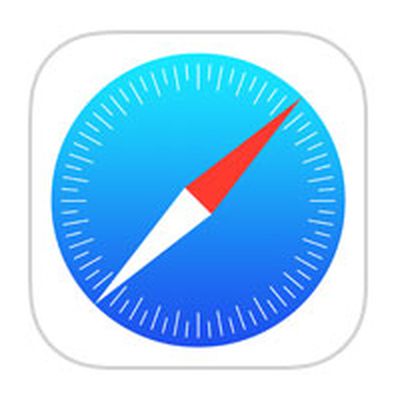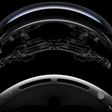Apple and Other Browser Makers Ban Kazakhstan HTTPS Certificate Used to Surveil Citizens
 Apple has teamed up with Google, Microsoft, and Mozilla to block a web browser root certificate that was being used by the Kazakhstan government to surveil its citizens.
Apple has teamed up with Google, Microsoft, and Mozilla to block a web browser root certificate that was being used by the Kazakhstan government to surveil its citizens.
The certificate allowed authorities to monitor people's online activity by intercepting and decrypting HTTPS traffic from residents in Nur-Sultan, the capital city of Kazakhstan.
Local ISPs were required to block foreign websites including Google and Twitter, unless users had the certificate installed, but Apple and the other browser makers on Friday acted in unison to ban the certificate, according to ZDNet.
Since the ban, Chrome, Edge, Mozilla, and Safari refuse to work with the certificate, and the browsers throw up error messages to users who installed it, telling them the certificate can't be used because it isn't trustworthy.
As ZDNet notes, this is the second time the four browser makers have banned a certificate issued by the Kazakh government for man-in-the-middle attacks. The first block came in August 2019, and acted to prevent a certificate used to intercept traffic for various Russian and English-speaking social media sites.
Note: Due to the political or social nature of the discussion regarding this topic, the discussion thread is located in our Political News forum. All forum members and site visitors are welcome to read and follow the thread, but posting is limited to forum members with at least 100 posts.
Popular Stories
While the iPhone 17 Pro and iPhone 17 Pro Max are not expected to launch until September, there are already plenty of rumors about the devices.
Below, we recap key changes rumored for the iPhone 17 Pro models as of April 2025:
Aluminum frame: iPhone 17 Pro models are rumored to have an aluminum frame, whereas the iPhone 15 Pro and iPhone 16 Pro models have a titanium frame, and the iPhone ...
Apple may have updated several iPads and Macs late last year and early this year, but there are still multiple new devices that we're looking forward to seeing in 2025. Most will come in September or October, but there could be a few surprises before then.
We've rounded up a list of everything that we're still waiting to see from Apple in 2025.
iPhone 17, 17 Air, and 17 Pro - We get...
Apple is preparing a "bold" new iPhone Pro model for the iPhone's 20th anniversary in 2027, according to Bloomberg's Mark Gurman. As part of what's being described as a "major shake-up," Apple is said to be developing a design that makes more extensive use of glass – and this could point directly to the display itself.
Here's the case for Apple releasing a truly all-screen iPhone with no...
The first iOS 19 beta is less than two months away, and there are already a handful of new features that are expected with the update.
Apple should release the first iOS 19 beta to developers immediately following the WWDC 2025 keynote, which is scheduled for Monday, June 9. Following beta testing, the update should be released to the general public in September.
Below, we recap the key...
Apple's upcoming foldable iPhone (or "iPhone Fold") will feature two screens as part of its book-style design, and a Chinese leaker claims to know the resolutions for both of them.
According to the Weibo-based account Digital Chat Station, the inner display, which is approximately 7.76 inches, will use a 2,713 x 1,920 resolution and feature "under-screen camera technology." Meanwhile, the...
A common complaint about the iPad Pro is that the iPadOS software platform fails to fully take advantage of the device's powerful hardware.
That could soon change.
Bloomberg's Mark Gurman today said that iPadOS 19 will be "more like macOS."
Gurman said that iPadOS 19 will be "more like a Mac" in three ways:Improved productivity
Improved multitasking
Improved app window management...
Apple is working on a new version of the Vision Pro with two key advantages over the current model, according to Bloomberg's Mark Gurman.
Specifically, in his Power On newsletter today, Gurman said Apple is developing a new headset that is both lighter and less expensive than the current Vision Pro, which starts at $3,499 in the U.S. and weighs up to 1.5 pounds.
Gurman said Apple is also...
Apple has confirmed that it will be permanently closing its retail store in the heart of Bristol, England, and there is no replacement in sight.
Apple Bristol in 2023
Apple Bristol will be closing its doors on Saturday, August 9, due to redevelopment plans at the Cabot Circus Shopping Centre, and the adjacent Bristol Shopping Quarter. According to news reports, and a building application, the ...
Apple today updated its vintage products list to add the 2018 Mac mini and the iPhone 6s, devices that will get more limited service and repairs now that they are considered vintage.
The iPhone 6s initially launched in 2015, but Apple kept it around as a low-cost device until 2018, which is why it is only now being added to the vintage list. The iPhone 6s had Apple's A9 chip, and it was...
![]() Apple has teamed up with Google, Microsoft, and Mozilla to block a web browser root certificate that was being used by the Kazakhstan government to surveil its citizens.
Apple has teamed up with Google, Microsoft, and Mozilla to block a web browser root certificate that was being used by the Kazakhstan government to surveil its citizens.






















